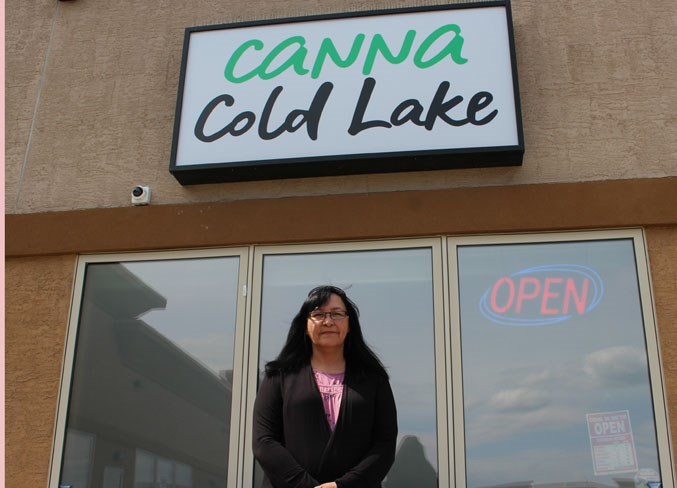When Irene Zimmer started her business, Canna Cold Lake, she faced the issue of finding financial support.
”We were working on that for little more than a year prior to doing a lot of research, looking for funds, and trying to get everything lined up,” she detailed.
Due to recreational cannabis being a new industry, Zimmer struggled to find a bank that would give her a loan prior to opening her doors.
As an indigenous woman herself, Zimmer was elated to hear about a new fund that offers aboriginal women a leg up when looking to expand their business. The Indigenous Women Entrepreneurship Fund was created to assist female entrepreneurs with getting their ideas off the ground through the Canadian Council for Aboriginal Business, an organization that supports the growth of aboriginal businesses.
According to the Canadian Council for Aboriginal Business, accessing equity or capital and financing was among the top three reported barriers indigenous business owners face along with finding qualified employees.
Philip Ducharme, director of innovation and entrepreneurship with the Canadian Council for Aboriginal Business, said it’s “geared toward women that don’t qualify for traditional conventional financing.”
”Sometimes the women don’t have the collateral, they’re a new business, and they’re looking for amounts that lenders aren’t looking at,” he continued.
Through the program, indigenous women can be granted a loan up to $4,000 at zero per cent interest that can be repaid with 36 months.The fund, which was launched on May 9 at the Aboriginal Economic Development Conference in Calgary, was created as a result of contributions from CIBC and the Indigenous Women’s Leadership Summit.
”It’s meant to help these businesses get to the level that they would qualify and that they would have sales... and revenue, for other financing options to grow their business,” detailed Ducharme.
Applications are being accepted online through the Canadian Council for Aboriginal Business’ website. Along with proof of indigenous ancestry, information on the business name, type, plan, and number of employees are also required.
”If there is more than one partner in it, we do require the documentation to show that it’s a 51 per cent owned business by the applicant,” Ducharme noted.
Social impacts on the local indigenous communities in the area are considered.
”A lot of the times, our indigenous women-owned businesses have families so they’re working part-time on this but have a great product. They have a good service that they can provide, so it’s easier for them to work from home or even work from remote communities, which a lot of them are,” explained Ducharme.
Zimmer is currently in the process of applying for the fund to put towards renovations at Canna Cold Lake.
”I just hope there’s a lot of women that apply, and we hear a lot of success stories coming from the area,” she added.
Ducharme believes the fund is “a great opportunity” for women with a great business plan that are struggling.
”Who knows where they’re going to go once they get their business up and running?”
The deadline for applications is Aug. 31, 2019. For more information, or to apply, visit www.ccab.com.



